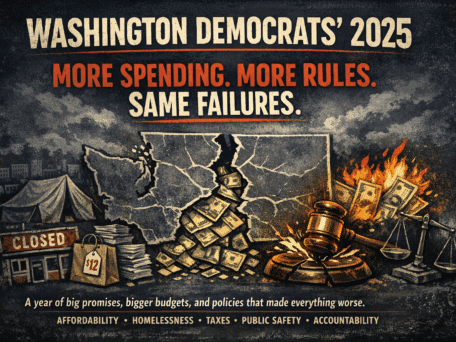The Seattle City Council’s descent into the far-Left pocket of the region’s labor unions became even more obvious yesterday, with the unanimous approval of the so-called ‘secure scheduling’ ordinance. It is expected Mayor Ed Murray will waste no time signing it into law, which will put the city in charge of determining how select businesses schedule and hire their employees – under threat of government fines.
Seattle will then join kindred spirit San Francisco in being the only U.S. cities which have been so seduced by big labor’s campaign dollars that it will heap anti-business regulation on top of anti-business regulation, all in the name of being “progressive.”
For the city council members, none of whom have much to speak of in terms of private sector experience, let alone running a business, it’s about power and ideological purity , As the Puget Sound Business Journal reported, “Before the vote, councilwoman Lorena González addressed the rest of the council and the packed chambers explaining how the new regulations will shift the power to employees and help fight income inequality. ‘It is meaningless, in my view, to have the nation’s highest minimum wage, if you only get to work five hours next week,’ she said. ‘That is not income equality.’ ”
The fact that the ordinance puts targeted city businesses at a competitive disadvantage, and makes them more susceptible to union organizing attempts to get out from under the law, was of little concern to Seattle’s electeds. Well-connected – and well-funded – labor unions, like SEIU, demanded the new law, and the council members who they helped put in office were more than willing to comply.
Some businesses tried to provide private-sector perspective about the unintended consequences of the new law, mainly that some part-time workers will lose hours, if not their jobs. Again, from the PSBJ, “Restaurant leaders have criticized the law as ‘just absurd,’ and suggested it will punish the same people it seeks to protect.”
But for the Seattle City Council, the main jobs they seek to protect are their own, so helping their union friends with a new law was a small price to pay.




